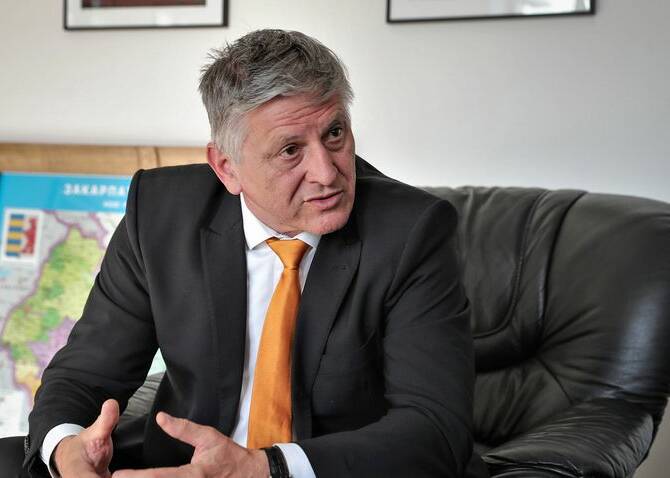This article has been published online by the Magyar Nemzet on June 18 2021.
On Tuesday, with the support of Jobbik, the Hungarian Parliament passed legislation for stricter action against pedophile offenders and to amend certain laws protecting children. The law passed with 157 votes in favor and one against. The LGBTQ lobby reacted predictably: after Monday’s Pride-like protest, domestic and international campaigns were launched against the apparently homophobic legislation.
Rights allegedly trampled
„If Viktor Orbán doesn’t know the difference between a gay person and a pedophile, he should ask József Szájer or Gábor Kaleta” said Zita Gurmai, Socialist MEP, in ATV.
Left-wing politicians emphasize the alleged loss of rights that the LGBTQ community have suffered and that in 2022, in the event of a new government, the law will immediately be amended. András Schiffer, Hungarian opposition politician, said on Spirit FM that this law is one of Fidesz’ political tricks and could later be used to attack the opposition. He believes the anti-pedophile law is unconstitutional. Noémi Kiss, writer and feminist, has spoken out against the sexualization of children several times. She believes it is important to address homosexuality in schools. However, in a statement on ATV, she also said that there is no consensus within the LGBTQ community on certain parts of the law: “There is the topic of sex changes which is surrounded by huge debates among the organizations, and within gender studies, even bigger debates have erupted. […] Allowing sex change medical treatment without any psychological tests or serious supervision is wrong in my opinion.”
The Háttér Society and Amnesty International Hungary held another protest at the Sándor Palace, the office of President János Áder. In addition to domestic political and press coverage, a number of foreign, mainly liberal, newspapers reported the events in a peculiar manner.
Distorted press coverage
Aside from the law itself, the Neue Zürcher Zeitung newspaper also attacked the legal analysis and research foundation, the Center for Fundamental Rights. According to the Swiss daily, official politics is fueling homophobia while religious fundamentalist civic groups such as the Center for Fundamental Rights are gaining more influence.
Erik Tóth, senior analyst at the Center for Fundamental Rights, said, at the request of our paper: they reject the accusation that they would incite homophobia to benefit in the public debate as a “religious-fundamentalist” group. “We believe in preserving national identity and sovereignty, as well as Christian social traditions, and universally believe in an unwavering stand for common sense and work to counter the human rights fundamentalism and political correctness that are prevalent in many areas of life today” stated the analyst.
Helena Dalli, European Commissioner for Equality, told the German Spiegel daily that the European Commission (EC) could withhold subsidies to Hungary if, by the instruction of the Orbán government, information materials on homosexuality were indeed censored,
and according to Deutsche Welle, the LGBTQ is the latest number one public enemy for Viktor Orbán.
According to the English Daily Telegraph, the ban will again force Hungary to clash with Brussels, which has already expressed concern over Hungarian measures against the media and their violations of rule of law. The Voice of America news portal referenced a Tweet from German Foreign Secretary Michael Roth where he said that the Hungarian parliamentary decision is another serious discrimination against gender minorities and runs counter to everything that is considered common European values.
The European Parliament’s rapporteur on Hungary stated that the law violates European values by attacking LGBTQ rights on the pretext of protecting children. Gwendoline Delbos-Corfield called on Member States to question the Hungarian government at next Tuesday’s Article 7 hearing.
Pedophile-friendly alert
The Hungarian anti-pedophile law also stirred up emotions among the European left. A group of LGBTQ organizations in Brussels and members of the left-liberal European Parliament (MEPs) already held a “mini- demonstration” in front of the EP building in Brussels on Tuesday. Terry Reintke of the Green party, an old critic of the Hungarian government, and one of the EU’s leading fighters for gay rights, said: “The European Commission should severely sanction Hungary because MEPs expect this from the institution.”
The relevant spokesperson from the European Commission pointed out that the Commission is aware of the recently passed legislation and its repercussions.
“We are evaluating the legislation in detail,” said Christian Wigand, who believes the EU takes inequalities in the LGBTQ community very seriously.
Under pressure from liberal newspapers’ journalists, Dana Spinant, Director of the European Commission, later spoke at the press conference: the Commission will share its views with the Hungarian and Polish governments on the matter, but this requires legally sound arguments.
Meanwhile, France and the Benelux states have also indicated that the anti-pedophile law will be discussed at the General Affairs Council meeting in Luxembourg next Tuesday. Incidentally, there will also be a hearing during the meeting on the Article 7, so-called rule of law, affair.
Liberal Justice commissioner Didier Reynders disapproved of Hungary on Twitter yesterday for “censoring” LGBTQ content. As he wrote, the younger generations are indeed in need of that information which reflects a modern, open and diverse society.
Krisztina Kincses – Tamara Judi




